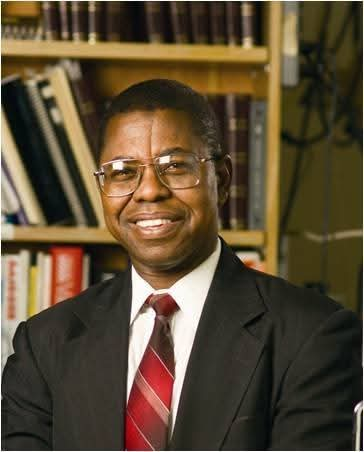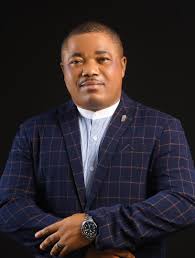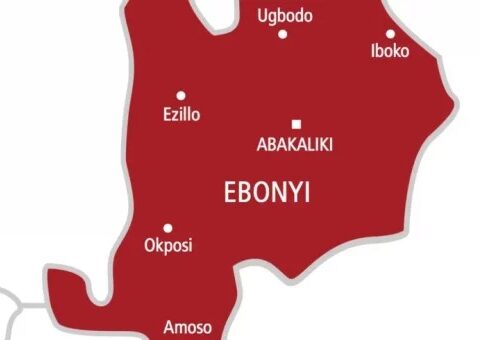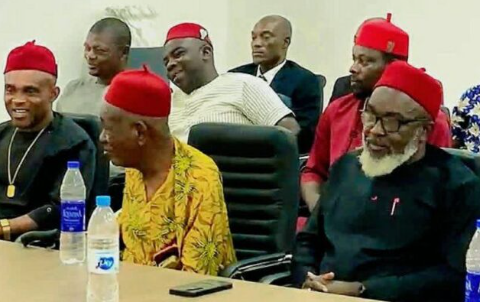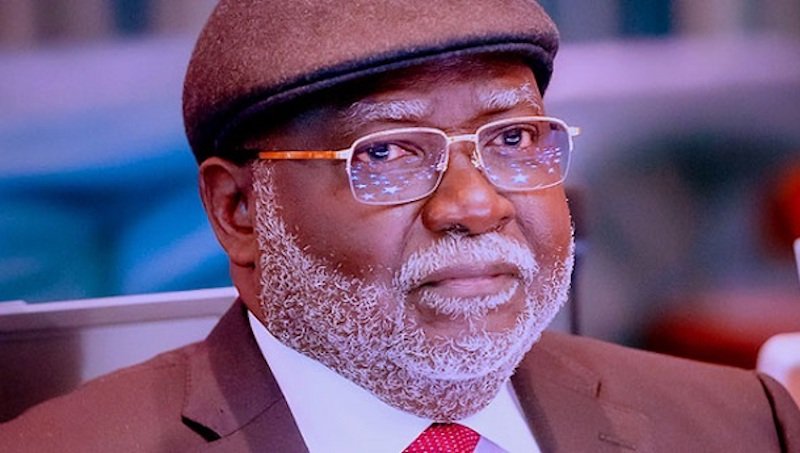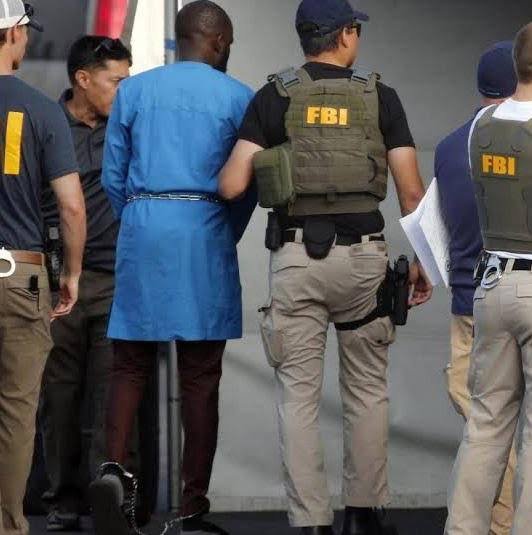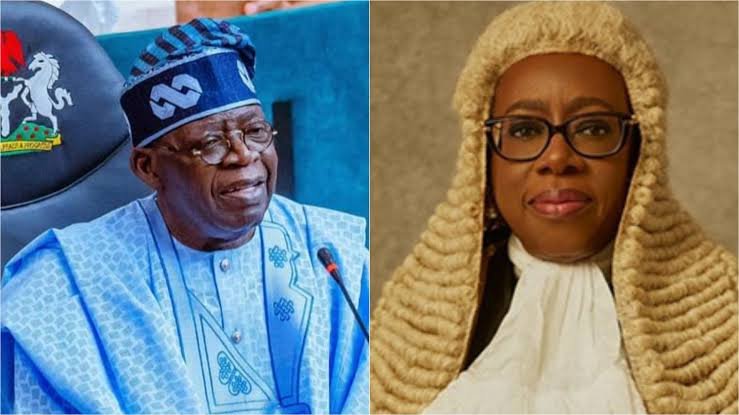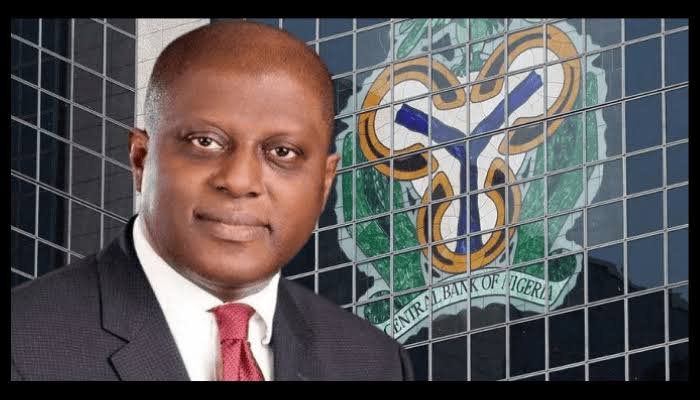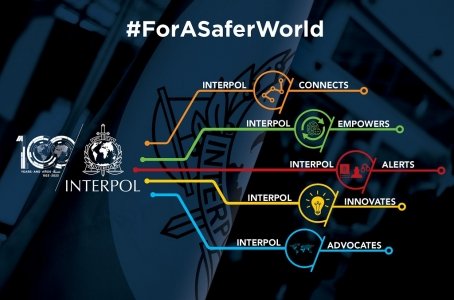Prof. Adedeji Bodunde Badiru, Dean Emeritus of the US Air Force Institute of Technology, is a renowned scholar, engineer, author, and mentor. Born in Epe, Lagos State, in 1952, his journey reflects resilience, determination, and divine grace. Losing his father at a young age and starting school at nine without knowing the alphabet, he rose to become a global authority in systems engineering and management. A proud beneficiary of the Nigerian Government Scholarship, Prof. Badiru’s story is one of grit, brilliance, and a deep commitment to giving back to Nigeria.
True to this mission, he recently established the Epe Welding Institute (EWI), a tuition-free training initiative designed to bridge theory and practice for apprentices and engineering students alike. The institute, which also offers training in plumbing and electrical work, aims to promote entrepreneurship and practical skills development. More details are available at www.epeweldinginstitute.com.
Below are highlights from Prof. Badiru’s interview with Ronke Kehinde for NewsmakersNG:
Q: Let’s begin with your academic journey. Please, share with us how your early life was, how it shaped your career path, and what it meant to receive a Nigerian Government scholarship.
A: I was born on September 2, 1952, so I’ll be 73 this year. My dad died when I was about to turn six. I am from Epe, Lagos State. My father had been in Ondo as a traveling building contractor. He got sick in 1958, came back home, and died there. That paints a picture of how things were from there.
The typical Nigerian family—once the head dies, everything is in disarray. It was a Muslim family; my father had four wives and many children. I was from the third wife. My mother had three kids: two girls older than me, then me, and the only boy. There were several siblings from the other wives, older and more established. I was at the tail end of the line, only one more after me.
The death of my father caused so much disruption. What would we do? We were in Epe, and in that process, there was no mechanism to figure out what to do with the youngest among us. So, I was stuck in Epe. The youngest wife returned to Ondo, her hometown. So we were three boys from three different wives who were left. One of us died just last year.
In that disruption, I was stuck in Epe and didn’t start school until I was nine. But I was street-smart, always playing around the streets of Epe and everywhere I knew. One of my older siblings from another wife said, “This boy appears to be brilliant, and he hasn’t gone to school.” She mandated that I should be brought to Lagos.
I was nine and didn’t know ABC or 123. She took me to Sumuratul Islamiyya Elementary School, at Nnamdi Azikiwe Street. The principal didn’t want to accept me because I was too old. But he spoke with me in his office, and he liked the way I could converse in street language. He said, “I think you could be a good student, the way you talk.” So, he put me in one classroom with 5- and 6-year-olds.
My maturity helped me listen to the teachers and get more. So, I did well at elementary school. When the common entrance came, I was invited for an interview. Mind you, I came from this background with no father, and I was the first child to be invited to King’s College for an interview. It made the principal proud because I was the first kid out of Sumuratul School to be invited for an interview at King’s College. That was a big deal.
But I was eliminated at the interview process because I had no father who could pay. So, I didn’t get into King’s College. I got invitations to several high schools, including Government College, Ibadan, but it was the same story—I couldn’t pay. My older sibling told me I was qualified for those big schools, so I didn’t even apply to the general schools. I would go there with no shoes and all.
Then, in 1968, when I should have been in secondary school, I still didn’t have anything. One of my older siblings, who insisted I must come to Lagos for school, said, “These schools don’t know what they’re missing by not admitting you.” Then she mentioned that St Finbarr’s College had advertised three openings in the paper. She told me to go there and see what would happen.
I went alone. Other kids came with their big parents in vehicles. Fortunately, the principal, Father Dennis Slattery, an Irishman, said he was different and only cared about qualifications. He checked the common entrance results of that year and started calling names from the highest scores. He said the first three people whose names were called and were present would be admitted.
They started calling names, and many of those already had schools, so they were not there. I still remember—they called Francis Egbunewe, Joseph Molokwe, and then my name, Bodunde Badiru. People were surprised because of how I looked—all alone, no shoes, nothing. Right there, he said I was admitted and put me in Class 1A. I didn’t have a uniform, but he said I should start attending classes and that I had two weeks to get one. My brother supported my education by buying books. My mother had to sell her jewelry to raise money for my uniform and books.
Fortunately, I did well throughout the five years. When we did the School Certificate Examination in December 1972, I performed well with a Grade One distinction. By the time the result came out, we had already left the school. Father Slattery sent someone from the school to come to our neighborhood in Ebute Metta, Apapa Road, to announce the result. He was so proud. It was a big deal in those days.
After high school, raising money for university was out of the question for the family. So, I went to work for Associated Industries in Ikeja. Since I had a high school certificate, I could be a factory supervisor in charge of people who didn’t go to school at all.
The work was in the evening, which disconnected me from the neighborhood fun of Apapa Road. I did only three months there. During that time, I saw what the white supervisors were doing to the native Nigerians. I was at the peppermint factory, where we milled sugar. We put sugar in a machine that blended it with other things to make peppermint. I was supervising the process. Sometimes, the workers would mistakenly put wet sugar in the machine, which clogged it. The maintenance man, a white man, would come and blame me as the supervisor. I would be thinking to myself, “How can this man be talking to me like this?” St Finbarr’s graduates were always so proud.
So, I left because I couldn’t stand it. It was in my mind that Nigerians should be the ones supervising things like that, not a white person insulting Nigerians. I then went to work at UTC, Union Trading Company, across the street, as an accounts clerk. I did that for some time, but the family kept saying my results meant I needed to go to university. But there was no money. I had to keep applying and sitting for exams. UTC wanted someone who could do overtime, not someone busy with other things. I quit about four months later.
While drifting, my former Arts teacher at Saint Finbarr’s—who always said I was naturally an artist—sent someone to tell me the Ministry of Education needed a Graphic Artist. That was the time of Dele Jegede, the cartoonist for the Daily Times. They needed someone, but there was no vacancy. I said no problem, I would go there and draw for free, just because it was fun for me.
When they wanted to do a TV program and needed illustrations, I would draw the dog, cat, or whatever. They flashed the cards on TV. I did that for maybe two years. Eventually, the head of the section, Mrs. F.R.A. Kanni, learned that I was the one producing all the graphics she admired. She later employed me as a clerical officer, since there was no vacancy for a graphic artist. But I didn’t do clerical work—I kept drawing.
Later, a friend informed me that the Central Bank was seeking an accounts clerk. I applied and got the job. It was within walking distance, and it was a fabulous thing for a young person to earn money. Then the Central Bank did a rationalization exercise, because there were many fake degrees everywhere. They were reviewing all certificates to check authenticity. My manager saw my certificate, Grade One distinction, and asked, “What is this boy doing here?” He called me over and asked, “What are you doing? We have verified that your result is genuine.” I replied, “Well, I am enjoying the job, but I have no pathway to go to university.” He said, “Oh, apply for a Federal Government scholarship.” I had never even heard of it.
That was how I got a scholarship from the Federal Government to study in the US. I also got one to Germany, and even one to study Medicine in Nigeria. But I chose Industrial Engineering, influenced by my experience at Associated Industries.
Q: What were your key takeaways from the International Diaspora Day, and how do you see the role of the diaspora in national development?
A: Dr. Abike Dabiri personally invited me because she knew my views on issues like that. Coming from my humble beginning, how I entered St Finbarr’s, it could not have happened without the hand of God working through people. I have spent so much of my time matching people with opportunities.
My takeaway is that Nigeria has so many talented people outside the country who have contributed to mentoring, education, and innovation. I want them to give back. Even now, when my colleagues hear that I’ve been to Nigeria four times this year, they are surprised. Most of the time, I’m not paid, but I still go. I always say Nigeria did a marvelous thing for me. I went abroad on a Nigerian Government Scholarship, so I owe the country something. I am paying back through people.
So, the takeaway is simple: give back.
Q: How do you think Nigeria can better engage its diaspora professionals, particularly in STEM fields, to strengthen research and innovation?
A: Judging from my own experience, when you bring in those from the diaspora, you must account for how their knowledge is leveraged. From a professor’s point of view, everything I am saying now, I said 20 years ago, and I am still saying it.
In Abuja, we spoke about industrial policy. I reminded them that in 1993 and 1994, I was a UN consultant to the Federal Ministry of Industry. We developed the Industrial Development Policy for Nigeria in 1993. And yet, last week in Abuja, we were still talking about things we had recommended back then.
What is missing is consistency in implementation. To engage the diaspora effectively, the government must demonstrate actualization of ideas and policy contributions. Show us the results, even if they are small steps. That is how you leverage diaspora knowledge.
Q: As Dean Emeritus of the US Air Force Institute of Technology, what has been the most rewarding aspect of your leadership in academia?
A: Mentoring young people. Engaging with them, encouraging them, not casting them away as “too young.” I enjoy hanging around young people.
Sometimes, I’m even at the buka (local eatery), and I’ll tell the woman, “If you do it this way, it will be easier for you.” Mentoring doesn’t have to be in the classroom. It can be personal or business-related. That’s what I enjoy most.
Emeritus means being in the retired category. I retired at 71 after serving as Dean of Engineering for the US Air Force Institute of Technology. While in service, I couldn’t freely engage with Nigeria because of my sensitive federal position. Every visit had to be cleared by the Pentagon. That limited me to visiting once in five years.
Now that I’m retired, I have been to Nigeria four times this year alone. People say, “You gave up that big salary?” and I say, “Yes, but I gained something bigger – freedom to serve my people.”
Q: What advice will you give to academic institutions in Nigeria striving to achieve global excellence in research and innovation?
A: Be true to your words.
Since the 1990s, I have brought books and resources to Nigerian institutions. They say nice things but rarely use them. Two years ago, I established a foundation to give an award to the best graduating Systems Engineering student at UNILAG. The money was provided, the contract was signed, but two years later, nothing has been done. And they cannot account for the money.
In May, I brought four suitcases of new books, at my own expense, for the Epe campus of LASU. I delivered them to the Ojo campus as directed. They told me it would take one or two weeks for the books to get to Epe. It’s been over two months, and the books are still not there.
To be world-class, you must keep your promises. That is the major shortcoming of our academic institutions.
Q: You are a scholar and practitioner. How do you bridge the gap between theory and practice in engineering and systems thinking?
A: I like to do it personally, to let people see it visually. For example, I’ll explain the theory of cement to a bricklayer. He already knows the practical side, but theory can make him better.
I recently started an initiative—the Epe Welding Institute. The website is www.epeweldinginstitute.com. It’s designed to combine apprenticeship (practical) with theoretical training. Apprentices and engineering students can both benefit. It is tuition-free. We are also adding plumbing and electrical training. The goal is entrepreneurship and bridging the gap between classroom theory and practical reality.
Q: As a fellow of IORMS, how do you see the importance of systems thinking in tackling national and organizational problems?
A: Visibility is key. Be vocal, be out there. Let people see the accomplishments and know which organization is behind them. For example, in Dayton, Ohio, where I live, the first airplane was invented in 1903. Yet, they don’t make enough noise about it. I keep telling them: when people fly, they should see a poster saying “Courtesy of Dayton, Ohio.” Visibility promotes recognition.
The same applies to IORMS—be visible in results, so people know where they come from.
Q: Can you share an example of a situation where systems engineering improved the outcome of a complex project, perhaps in the military or industrial sector?
A: In 1993, I was a UN consultant to the Ministry of Industry. I oversaw Industrial Development Centers (IDCs) across Nigeria. Every state had one, meant to bridge theory and practice.
But when I visited, most were doing nothing—except two. The one in Owerri, which sustained the Biafran war effort through innovation, and the one in Osogbo, which produced under private enterprise. When ministers visited, other IDCs would “borrow” equipment from private companies, stage displays, and deceive visitors. I uncovered this and reported it.
I recommended that the UN stop giving Nigeria money until past funds were properly accounted for. But the UN said they could not, because their budget is for member nations. Some nations use their allocations wisely, others waste them, but the system continues.
That is systems thinking: understanding that a large system (like the UN) survives through contributions, but sub-systems (like Nigeria’s IDCs) must learn from each other to succeed. Otherwise, disparity persists.
